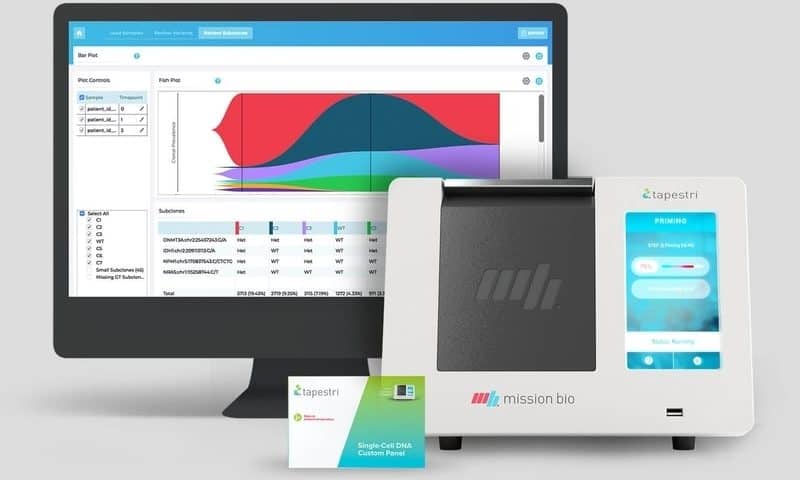As a senior executive at Thermo Fisher Scientific, Yan Zhang wasn’t really on the hunt for a new job. But when a recruiter came along with a CEO role at an up-and-coming genomics company, Zhang found the offer hard to resist.
“It really felt right,” Zhang said of the job at Mission Bio, a company that offers single-cell sequencing technology to help speed up drug R&D. “It’s in the perfect high-growth market … and I felt like I could add a lot of value given my background. It was a once-in-a-lifetime opportunity.”
Zhang held several roles in her 10 years at Thermo Fisher, including general manager of its reproductive health unit and microarray business. She has also led the company’s commercial organization in China for its genetic sciences and clinical next-generation sequencing (NGS) units.
Now, she will take the helm of Mission Bio from Charlie Silver, the company’s co-founder and CEO, as it looks to ramp up its work. Silver, who led the team that developed the company’s platform and took it to market, will move into an advisory role.
“Yan spent the last decade growing the genomics business for one of the world’s largest life sciences companies,“ Robert Ghenchev, senior partner and head of Novo Growth and Mission Bio board member, said in a statement. “During that time, she demonstrated a consistent ability to successfully commercialize innovative new technologies—including clinical NGS products—into high-growth markets. With its experienced team and exceptional technology, Mission Bio has reached the tipping point that all companies in this space hope to achieve.”
Mission Bio raised its largest round yet in August 2020, a $70 million series C financing tagged to scale up its single-cell multiomics platform known as Tapestri. What sets Tapestri apart from other approaches is its ability to simultaneously detect DNA and protein changes in the same cell, which could help researchers unravel how tumors grow and develop resistance to drugs.
Besides oncology drug development, the company is pitching the use of its platform in biomarker development for clinical trials as well as for the development of cell and gene therapies and genome editing approaches.
“Now that we have the team in place and the funding in place, we are really going about capturing the market opportunity,” Zhang said. “The No. 1 thing is to grow revenue, grow the customer base and turn the applications of our solutions from project-based to routine utilization.”

